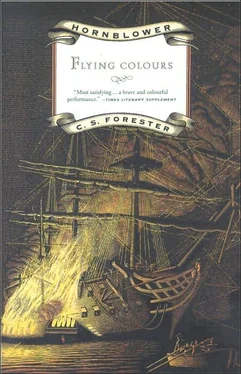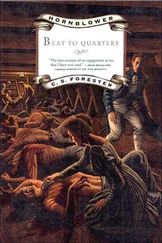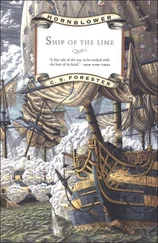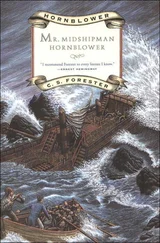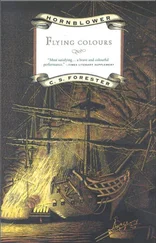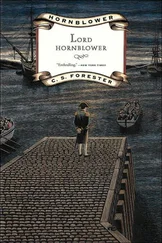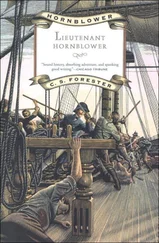Cecil Forester - Flying Colours
Здесь есть возможность читать онлайн «Cecil Forester - Flying Colours» весь текст электронной книги совершенно бесплатно (целиком полную версию без сокращений). В некоторых случаях можно слушать аудио, скачать через торрент в формате fb2 и присутствует краткое содержание. Год выпуска: 1989, ISBN: 1989, Издательство: Back Bay Books, Жанр: Исторические приключения, Путешествия и география, Морские приключения, на английском языке. Описание произведения, (предисловие) а так же отзывы посетителей доступны на портале библиотеки ЛибКат.
- Название:Flying Colours
- Автор:
- Издательство:Back Bay Books
- Жанр:
- Год:1989
- ISBN:0316289396
- Рейтинг книги:5 / 5. Голосов: 1
-
Избранное:Добавить в избранное
- Отзывы:
-
Ваша оценка:
- 100
- 1
- 2
- 3
- 4
- 5
Flying Colours: краткое содержание, описание и аннотация
Предлагаем к чтению аннотацию, описание, краткое содержание или предисловие (зависит от того, что написал сам автор книги «Flying Colours»). Если вы не нашли необходимую информацию о книге — напишите в комментариях, мы постараемся отыскать её.
Flying Colours — читать онлайн бесплатно полную книгу (весь текст) целиком
Ниже представлен текст книги, разбитый по страницам. Система сохранения места последней прочитанной страницы, позволяет с удобством читать онлайн бесплатно книгу «Flying Colours», без необходимости каждый раз заново искать на чём Вы остановились. Поставьте закладку, и сможете в любой момент перейти на страницу, на которой закончили чтение.
Интервал:
Закладка:
But the French squadron was firing back badly and irregularly. There was no sudden glow of broadsides where they lay anchored, but only an irregular and intermittent sparkle as the guns were loosed off anyhow. In a night action like this, and after a sudden surprise, Hornblower would not have trusted even an English seaman with independent fire. He doubted if as many as one-tenth of the French guns were being properly served and pointed. As for the heavy guns pealing away beside him from the fortress, he was quite certain they were doing no good to the French cause and possibly some harm. Firing at half a mile in the darkness, even from a steady platform and with large calibre guns, they were as likely to hit friend as foe. It had well repaid Admiral Martin to send in Leighton and his ships in the moonless hours of the night, risking all the navigational perils of the bay.
Hornblower choked with emotion and excitement as his imagination called up the details of what would be going on in the English ships—the leadsman chanting the soundings with disciplined steadiness, the heave of the ship to the deafening crash of the broadside, the battle lanterns glowing dimly in the smoke of the lower decks, the squeal and rattle of the gun trucks as the guns were run up again, the steady orders of the officers in charge of sections of guns, the quiet voice of the captain addressing the helmsmen. He leaned far over the parapet in the darkness, peering down into the bay.
A whiff of wood smoke came to his nostrils, sharply distinct from the acrid powder smoke which was drifting by from the guns. They had lit the furnaces for heating shot, but the commandant would be a fool if he allowed his guns to fire red-hot shot in these conditions. French ships were as inflammable as English ones, and just as likely to be hit in a close battle like this. Then his grip tightened on the stonework of the parapet, and he stared and stared again with aching eyes towards what had attracted his notice. It was the tiniest, most subdued little red glow in the distance. The English had brought in fire ships in the wake of their fighting squadron. A squadron at anchor like this was the best possible target for a fire ship, and Martin had planned his attack well in sending in his ships of the line first to clear away guard boats and beat down the French fire and occupy the attention of the crews. The red glow suddenly increased, grew brighter and brighter still, revealing the hull and masts and rigging of a small brig; still brighter it grew as the few daring spirits who remained on board flung open hatches and gunports to increase the draught. The tongues of flame which soared up were visible even to Hornblower on the ramparts, and they revealed to him, too, the form of the Turenne alongside her—the one French ship which had emerged from the previous battle with all her masts. Whoever the young officer in command of the fire ship might be, he was a man with a cool head and determined will, thus to select the most profitable target of all.
Hornblower saw points of fire begin to ascend the rigging of the Turenne until she was outlined in red like some set-piece in a firework display. Sudden jets of flame showed where powder charges on her deck were taking fire; and then the whole set-piece suddenly swung round and began to drift before the gentle wind as the burnt cables gave way. A mast fell in an upward torrent of sparks, strangely reflected in the black water all round. At once the sparkle of gunfire in the other French ships began to die away as the crews were called from their guns to deal with the drifting menace, and a slow movement of the shadowy forms lit by the flames revealed that their cables had been cut by officers terrified of death by fire.
Then suddenly Hornblower’s attention was distracted to a point closer in to shore, where the abandoned wreck of the Sutherland lay beached. There, too, a red glow could be seen, growing and spreading momentarily. Some daring party from the British squadron had boarded her and set her on fire, too, determined not to leave even so poor a trophy in the hands of the French. Farther out in the bay three red dots of light were soaring upwards slowly, and Hornblower gulped in sudden nervousness lest an English ship should have caught fire as well, but he realized next moment that it was only a signal—three vertical red lanterns—which was apparently the prearranged recall, for with their appearance the firing abruptly ceased. The blazing wrecks lit up now the whole of this corner of the bay with a lurid red in whose light could be distinctly seen the other French ships, drifting without masts or anchors towards the shore. Next came a blinding flash and a stunning explosion as the magazine of the Turenne took fire. For several seconds after the twenty tons of gunpowder had exploded Hornblower’s eyes could not see nor his mind think; the blast of it had shaken him, like a child in the hands of an angry nurse, even where he stood.
He became aware that daylight was creeping into the bay, revealing the ramparts of Rosas in hard outlines, and dulling the flames from the wreck of the Sutherland. Far out in the bay, already beyond gunshot of the fortress, the five British ships of the line were standing out to sea in their rigid line-ahead. There was something strange about the appearance of the Pluto ; it was only at his second glance that Hornblower realized that she had lost her main topmast—clear proof that one French shot at least had done damage. The other ships revealed no sign of having received any injury during one of the best managed affairs in the long history of the British Navy. Hornblower tore his gaze from his vanishing friends to study the field of battle. Of the Turenne and the fire ship there was no sign at all; of the Sutherland there only remained a few blackened timbers emerging from the water, with a wisp of smoke suspended above them. Two ships of the line were on the rocks to the westward of the fortress, and French seamanship would never make them seaworthy again. Only the three-decker was left, battered and mastless, swinging to the anchor which had checked her on the very edge of the surf. The next easterly gale would see her, too, flung ashore and useless. The British Mediterranean fleet would in the future have to dissipate none of its energies in a blockade of Rosas.
Here came General Vidal, the governor of the fortress, making his rounds with his staff at his heels, and just in time to save Hornblower from falling into a passion of despair at watching the English squadron disappear over the horizon.
“What are you doing here?” demanded the General, checking at the sight of him. Under the sternness of his expression could be read the kindly pity which Hornblower had noticed in the faces of all his enemies when they began to suspect that a firing party awaited him.
“The officer of the grand guard allowed me to come up here,” explained Hornblower in his halting French. “I gave him my parole of honour not to try to escape. I will withdraw it again now, if you please.”
“He had no business to accept it, in any case,” snapped the General, but with that fateful kindliness still apparent. “You wanted to see the battle, I suppose?”
“Yes, General.”
“A fine piece of work your companions have done.” The General shook his head sadly. “It will not make the government in Paris feel any better disposed towards you, I fear, Captain.”
Hornblower shrugged his shoulders; he had already caught the infection of that gesture during his few days’ sojourn among Frenchmen. He noted, with a lack of personal interest which seemed odd to him even then, that this was the first time that the Governor had hinted openly at danger threatening him from Paris.
“I have done nothing to make me afraid,” he said.
Читать дальшеИнтервал:
Закладка:
Похожие книги на «Flying Colours»
Представляем Вашему вниманию похожие книги на «Flying Colours» списком для выбора. Мы отобрали схожую по названию и смыслу литературу в надежде предоставить читателям больше вариантов отыскать новые, интересные, ещё непрочитанные произведения.
Обсуждение, отзывы о книге «Flying Colours» и просто собственные мнения читателей. Оставьте ваши комментарии, напишите, что Вы думаете о произведении, его смысле или главных героях. Укажите что конкретно понравилось, а что нет, и почему Вы так считаете.
